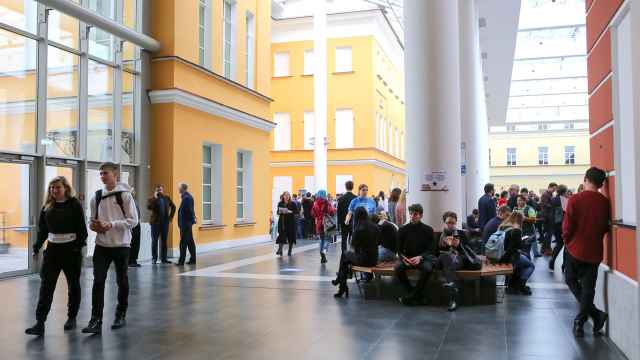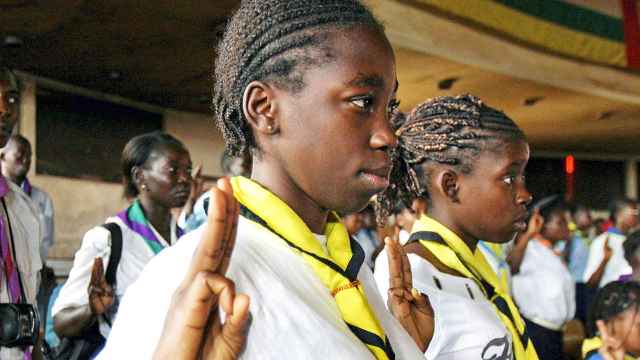Things could get a lot harder for the activists at “Dissernet,” which has exposed surprising instances of plagiarism in the dissertations of some of Russia's top politicians. Education officials in the federal government have reportedly developed draft legislation that would make it possible to revoke a person's academic doctorate only after a copyright ruling by a court has come into effect.
Former Deputy Minister of Education and Science Igor Fedyukin told the newspaper Vedomosti that the ability to revoke degrees needs to be restricted. “In most cases, university dissertation boards are not happy when politicians are deprived of their degrees," he said.
Dissernet is an independent network of experts, researchers, and reporters working to uncover plagiarism in Russian academia, focusing especially on political and public figures. In the past, the group has exposed prominent officials such as State Duma Chairman Sergei Naryshkin, Culture Minister Vladimir Medinsky, and Children's Ombudsman Pavel Astakhov, finding numerous “citation inaccuracies” in their scholarly work.
When Dissernet discovers evidence of plagiarism, it often calls on dissertation boards to revoke the plagiarist's academic credentials. If education officials get their way, however, it will only be possible to revoke these credentials after a court has ruled that a copyright violation was committed. These verdicts, moreover, require that copyright holders bring the matter to court in the first place — something people who sell dissertations to multiple clients are unlikely to do.
News of the government's legislative proposal follows fresh allegations that Vladimir Markin, the spokesperson for Russia's Federal Investigative Committee, copied a journalist's work in his latest book without permission. Nadezhda Prusenkova, a correspondent with the independent newspaper Novaya Gazeta says Markin took her writing about journalist Anna Politkovskaya's murder in 2014 and used it in his book, “The Most Notorious Crimes of the Twentieth Century.”
Writing on Twitter on Wednesday, Markin denied the plagiarism charges, accusing Prusenkova of promoting herself, using his name, and calling her “a little journalist woman nobody needs.” On Thursday, Markin apologized for his outburst, saying he was having an “emotional day,” though he maintains that he did not plagiarize Prusenkova's work.
According to data presented by Dissernet, one in nine members of Russia's outgoing State Duma plagiarized parts of their academic work. The groups says it has evidence that 33 people running for the Duma in the Sept. 18 elections also cheated on their doctoral and thesis papers.
A Message from The Moscow Times:
Dear readers,
We are facing unprecedented challenges. Russia's Prosecutor General's Office has designated The Moscow Times as an "undesirable" organization, criminalizing our work and putting our staff at risk of prosecution. This follows our earlier unjust labeling as a "foreign agent."
These actions are direct attempts to silence independent journalism in Russia. The authorities claim our work "discredits the decisions of the Russian leadership." We see things differently: we strive to provide accurate, unbiased reporting on Russia.
We, the journalists of The Moscow Times, refuse to be silenced. But to continue our work, we need your help.
Your support, no matter how small, makes a world of difference. If you can, please support us monthly starting from just $2. It's quick to set up, and every contribution makes a significant impact.
By supporting The Moscow Times, you're defending open, independent journalism in the face of repression. Thank you for standing with us.
Remind me later.





